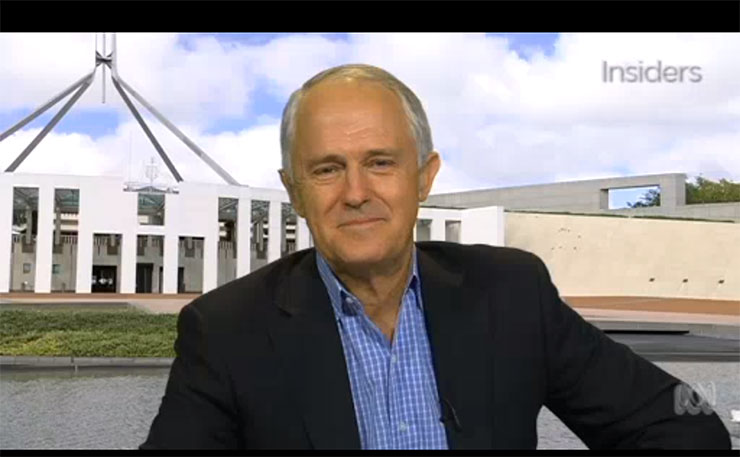Media and marketing expert Victoria Fielding puts Labor and Liberal messaging under the blowtorch.
As the May budget draws nearer, Turnbull is facing increased criticism about his missing policies, and is struggling to convince voters he has a vision for Australia’s future.
Recently, former Victorian Liberal Premier, Jeff Kennett, accused Turnbull of squandering ‘the opportunity to create a narrative for his government’, and claimed the PM had therefore ‘burnt all his goodwill at a time when the public are “craving for leadership”’.
When you hear commentators describe a political leader as lacking a narrative, it’s a sure sign the leader is in rough political seas. With all the chopping and changing of party leaders and governments over the past six years, Turnbull is not the only PM panned for a missing narrative.
In the case of Gillard and Abbott, this criticism reached a crescendo right before their leadership demise. There was early hope for Turnbull. When he took over from Abbott as Prime Minister, The Age’s editorial welcomed the prospect of a new narrative, declaring the ‘Time right for Turnbull to deliver good policy and a coherent narrative’.

Good policy and coherent narrative. Can you have one without the other? Or is this a chicken and egg paradox? Does a good narrative precede good policy or the other way around?
To help answer these questions, I researched a political narrative to discover what this fabled key political ingredient is, and whether the former Labor Government and Liberal National Opposition displayed a narrative in Rudd mark-one’s final political contest as Prime Minister: the original mining tax.
Not content to lay the communication blame entirely at the feet of politicians, I also analysed mainstream newspapers’ reporting to see which mining tax story was presented to the public.
A political narrative is a story told by politicians to position their values and to signpost their future decisions. In 2013, Waleed Aly wrote in the Sydney Morning Herald: “Voters are not merely electing a suite of set policies. They are electing a party that will respond to future, unforeseen policy questions. They therefore need to know what you’re about. That’s what a clear consistent story tells them.”
Stories told by politicians about their personal backgrounds show what type of leaders they want to be. Stories told about political policies provide a road-map for values. The collection of political narratives told by a party contribute to an overarching narrative.
Ideally such a narrative is coherent or ‘on message’ so that the stories frame the values of the political party and provide a solid and predictable reference point voters use to decide if they feel the same way.
A typical political story has three archetypal characters: a hero, villain and innocent victim. I found a fair-dinkum Labor mining tax story would identify the villainous mining industry as taking more than their fair share of profits from selling Australia’s natural resources, which in turn hurts the victims in the story: the Australian community who own these resources.
The hero who would sweep in to save this victim would be Labor’s mining tax policy, redistributing mining super-profits more fairly amongst the community. By counting the number of times these characters showed up in parliamentary communications, I found this is indeed the story Labor MPs consistently used to argue their case for the mining tax.

But this is not the end of the story. Although Labor did have a mining tax narrative, their narrative was decidedly weak. Amongst the reasons for this was Labor’s over-reliance on their hero: the initiatives funded by the mining tax.
There was not enough emphasis given to their victim, the Australian public who weren’t receiving their fair share; and their villain, the mining industry whose super profits were causing structural inequity in the economy.
On top of this, Labor’s mining tax policy hero – a three-pronged distribution of mining tax revenue to superannuation savings, company tax reduction and infrastructure spending – was too complicated, fragmented and therefore difficult for the public to support.
As with any story where the audience doesn’t have a chance to empathise with the victim, isn’t given much reason to fear the villain and can’t grasp the need for the hero, Labor’s mining tax narrative fell unsurprisingly flat.
If the makeup of a policy makes it difficult to communicate, should the policy be reworked? It’s easy to answer this question when you consider that a badly communicated policy has little chance of success.
The Liberal’s mining tax narrative, on the other hand, was strong. The characters in the Abbott-led Opposition narrative were the risk-taking, job-creating mining industry heroes, who just wanted to get on with their job unencumbered by the villains: the big-Labor Government and their wicked mining tax.
All these heroes wanted was to save the victim of this story; the Australian economy, which would be damaged by yet another Labor ‘great big tax’.
These characters appeared consistently throughout the Liberal National attack on Labor’s mining tax, with maximum weight given to the victim and the villain, and less emphasis on the heroic miners (who ran their own $22 million PR campaign telling the same story).

This negative narrative, focused on the doom and gloom of Labor’s ‘dagger in the heart of the Australian economy’ mining tax, benefited from what Cleary describes as the belief that ‘what’s good for the [mining]company is good for the country’.
Therefore, when the Opposition said the mining tax was bad for miners, the mining tax and in turn Labor were framed as bad for the country, leading to a strong anti-mining tax and anti-Labor narrative.
While this strong Liberal narrative beat Labor’s weak narrative over the head with a stick throughout parliamentary communications, the story of the fate of the mining tax isn’t complete without looking at mainstream newspapers’ coverage of the policy.
I found that more than three quarters of mining tax newspaper stories reported the policy from a perspective that closely aligned to the Liberal narrative, in that the same characters were used to frame the mining tax in a negative light.
Even when Labor’s narrative was used by journalists, the focus was mostly on the villainous miners, emphasising the industry’s role in the policy battle.
Significantly, the news media barely mentioned either Labor’s victim: the Australian community who weren’t receiving their fair share, or Labor’s hero: the actual details of Labor’s mining tax policy.
Although I didn’t find Labor’s narrative was missing as such, I certainly found it to be weak and therefore unpersuasive. But the commentators and journalists who claimed the Labor government didn’t have a story to back up their policy were the very same people responsible for telling, in 76 per cent of cases, the same mining tax story as the Liberal Nationals. Funny that.
For this reason, Labor’s mining tax narrative, the weak little chicken that popped out of the mining tax policy egg, and the delicate egg itself, didn’t stand a chance.
Perhaps if the narrative chicken had been planned more strategically by Labor in the first place, and not rushed onto the stage without the groundwork of a victim and villain frame to set up a plot, the public might have been more prepared to fight for the heroic policy.
The policy egg would then have had a thicker shell and might have survived past infancy. Perhaps then, the Australian public would have lived happily, and more equitably, ever after. Perhaps, perhaps, perhaps.
Donate To New Matilda
New Matilda is a small, independent media outlet. We survive through reader contributions, and never losing a lawsuit. If you got something from this article, giving something back helps us to continue speaking truth to power. Every little bit counts.





